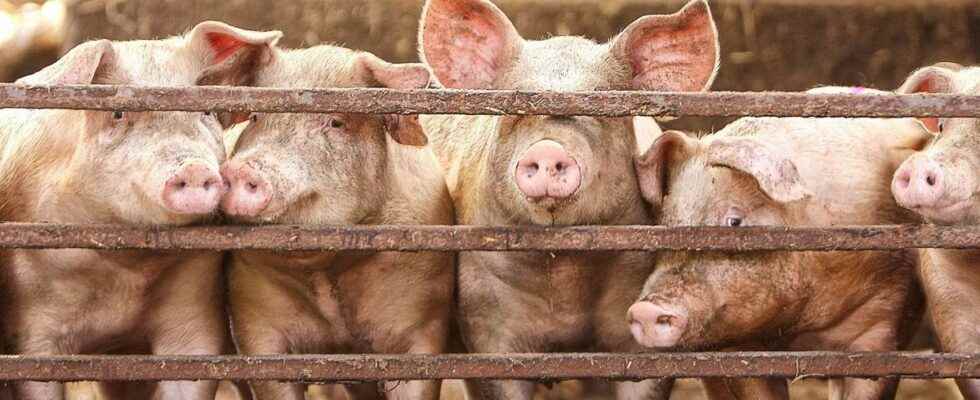Posted ,
Reading 2 mins.
Thursday, May 26, the French Ministry of Agriculture announced the discovery of an outbreak of African swine fever in Germany, near the French border. What are the risks for humans?
After Covid-19 and monkeypox, it’s time for swine fever. This virus, often fatal for pigs, was detected in a German farm, 6 kilometers from the French border.
The farm was completely depopulated
The 35 free-range pigs were culled.
“No cases have been identified at this stage among wildlife in the surrounding area.said the ministry, which will launch a crisis unit “next week” with “all the professionals and services of the State.
It’s the “first case highlighted on the western border of Germany (…) on the other side of the Rhine”says the ministry.
To prevent any spread of the virus beyond the outbreak, the German authorities will soon “intensify the search for wild boar carcasses and control surrounding farms”. A protection and surveillance zone has also been set up by the German authorities, in conjunction with the European Commission.
According to the European Food Safety Authority, there is no cure for this virus (no vaccine or treatment). African swine fever kills pigs, wild boars and warthogs within ten days of infection.
African swine fever: no risk for humans
The virus is transmitted from one animal to another or through materials, vehicles and/or people who have been in contact with infected animals. It is present in blood, tissues, urine, feces and secretions. It is therefore resistant and very contagious; reason why it can quickly spread throughout a farm.
However, it is safe for humans.
“African swine fever is an exclusively animal disease that only affects wild boars, farmed boars and domestic pigs. It is therefore not transmissible to humans and does not present any danger to human health. confirms the French Ministry of Agriculture.
No risk on the consumption of meat or pork sausages
The consumption of meat and cold cuts – and more generally products made from pork or wild boar – therefore presents no risk.
“All animals destined for a slaughterhouse for human consumption are subject to inspections by the veterinary services before and after slaughter.“, recalls the ministry.
The virus can nevertheless survive for more than two months in meat and sausages from sick animals.
In France, no trace of the virus has been detected since 1974. Italy, on the other hand, is experiencing the start of an epidemic: an emergency plan has been launched in the Rome region to stem the virus.
A total of eight cases have been identified since the beginning of the year.
